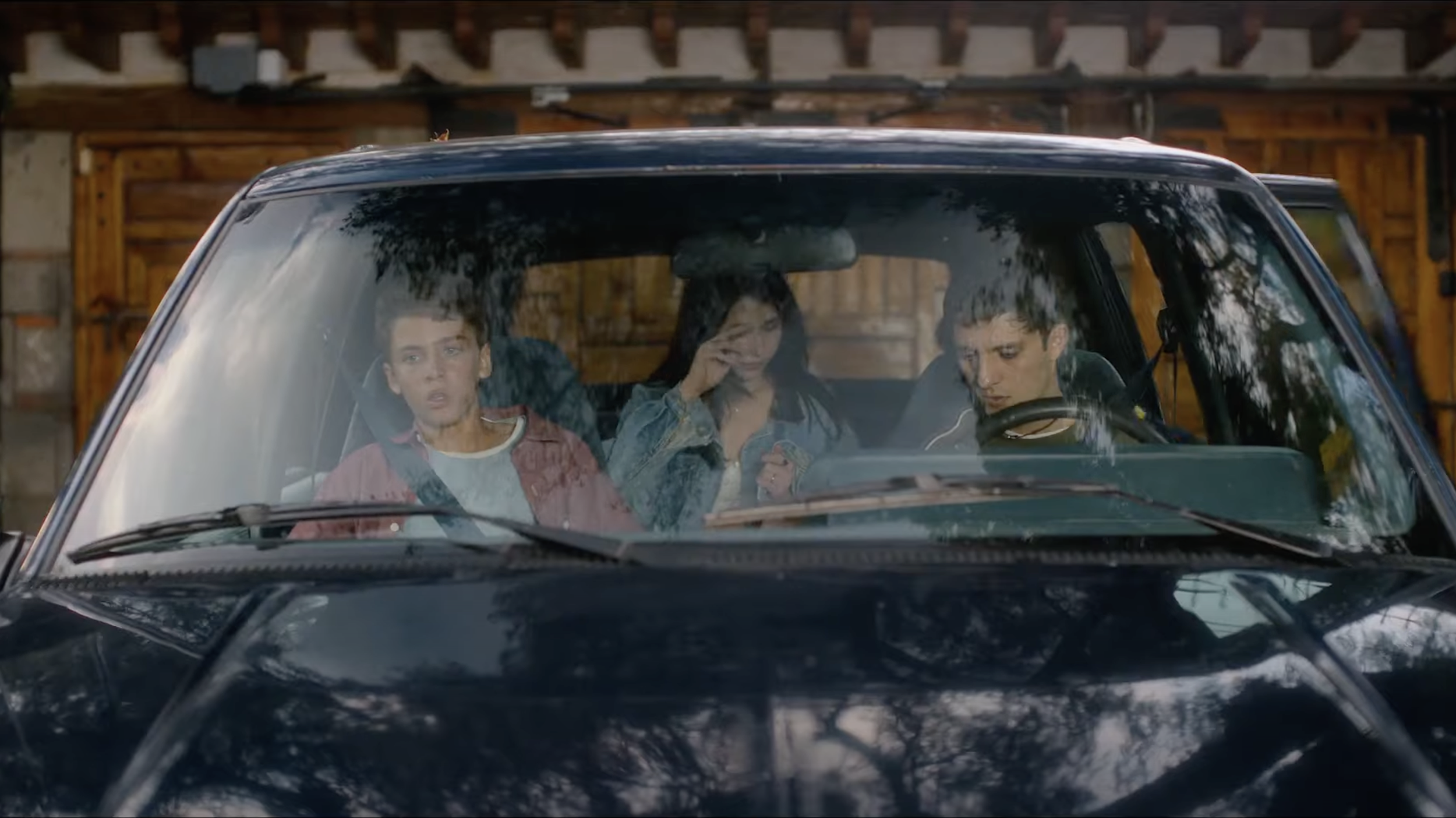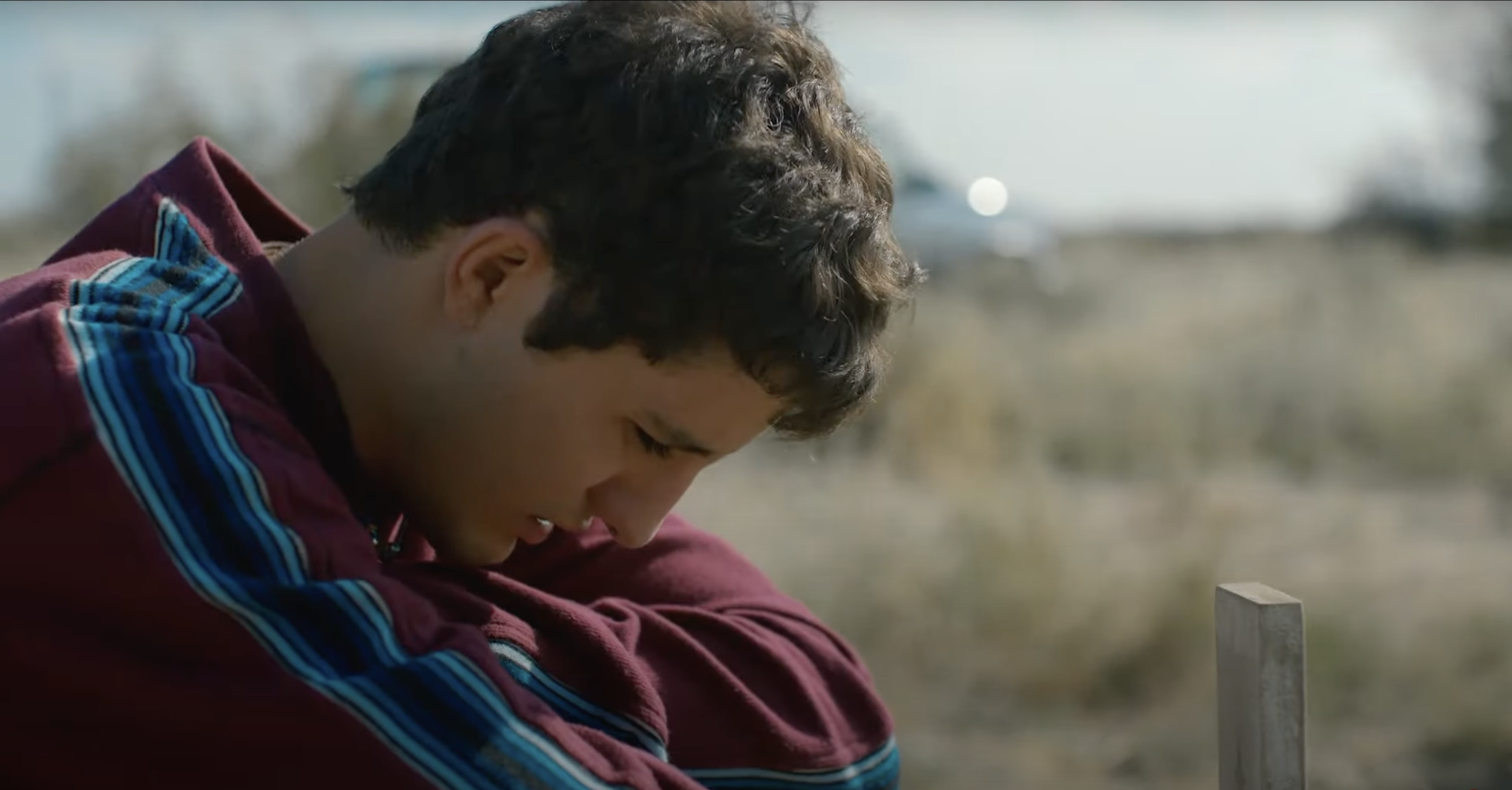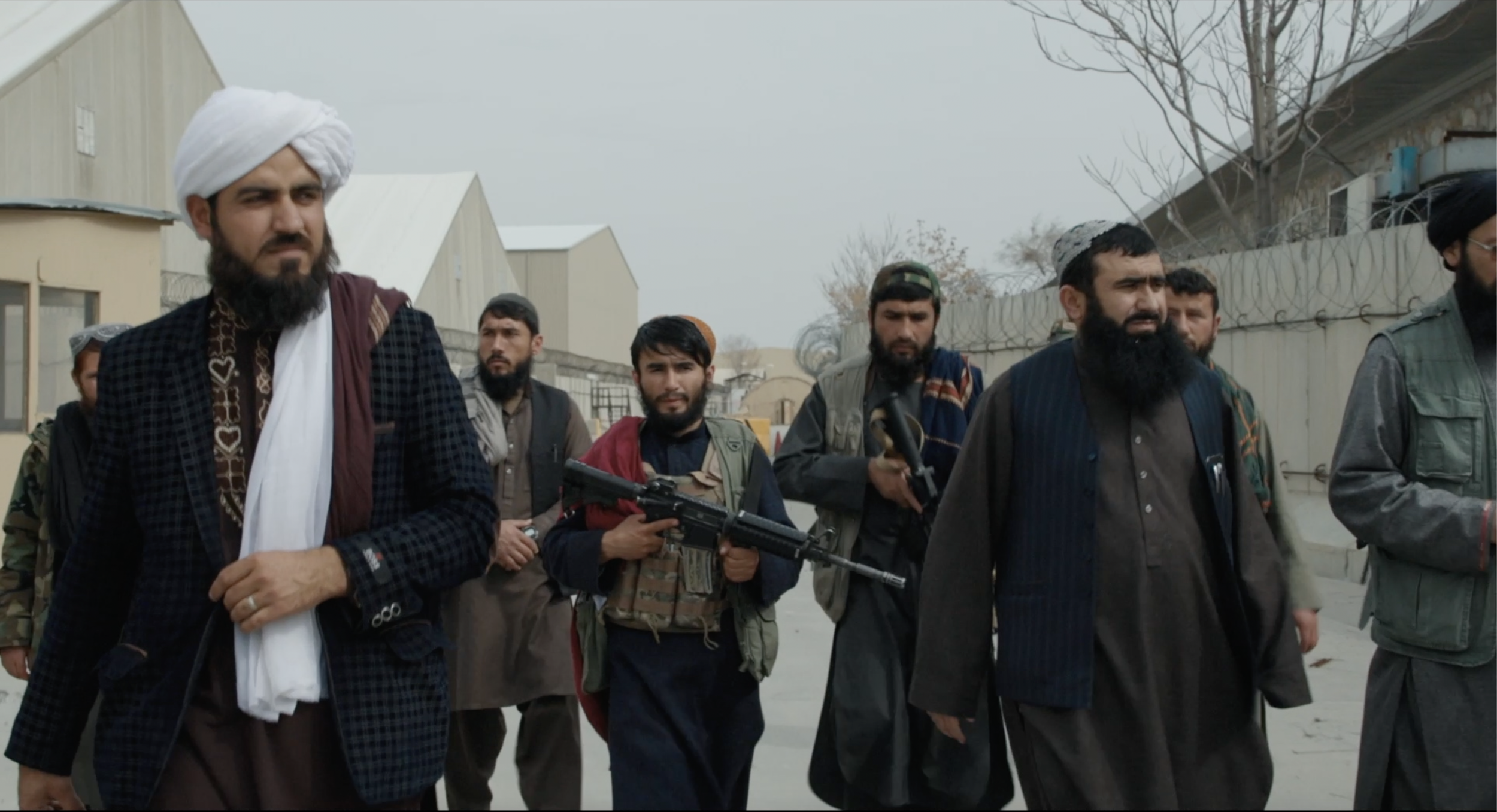A cielo abierto - Upon Open Sky Directed by Mariana Arriaga, Santiago Arriaga
A cielo abierto - Upon Open Sky
Directed by Mariana Arriaga, Santiago Arriaga
Starring: Julio Bracho, Manolo Cardona, Julio Cesar Cedillo, Federica Garcia, Theo Goldin, Federica García González, Máximo Hollander, Sergio Mayer Mori, Cecilia Suárez
Country: Spagna, Messico, Argentina
Year: 2023
Review Author: Roberto Matteucci
Click Here for Italian Version
“Ya olvídalo.”
“¿Tú lo vas a olvidar?”
“Nunca.”
The concept of revenge and related terms, according to the Vatican Bible website (1), emerge one hundred and twenty-seven times. With a few exceptions, these are all in the Old Testament.
It is a widespread and important concept. Moreover, in ancient times, justice was not delegated to others, such as police or judges, but was carried out directly through the law of retaliation.
Yet, there is a positive counterpart. Its opposite appears even more frequently. One hundred and sixty-one references to forgiveness and connected terms. (2)
In Leviticus 19:18, revenge is resentment, compassion is forgiveness:
“Take no revenge and cherish no grudge against your fellow countrymen. You shall love your neighbor as yourself. I am the LORD.”
You must not take revenge but love everyone.
To whom does justice belong?
Deuteronomy 32:35-36 makes this clear:
“Surely, the LORD shall do justice for his people; on his servants he shall have pity. When he sees their strength failing, and their protected and unprotected alike disappearing …”
Punishment administered by the hand of God is righteousness and it is God himself who dispenses it. Those who have suffered a wrong must merely wait. There is a difference: God's justice is perfect and infallible.
There is a difference: God's justice is perfect and infallible.
However, in this imperfect world, it is impossible to await divine judgment but rely on earthly legality, which is often inadequate and questionable.
Currently, justice is totally entrusted to public intermediaries. Indeed, these third parties are envious of interventions in their power. They should be upright, they should judge and impose sentences based on impartiality. Unfortunately, due to incapacity, corruption, and class connivance, those who are entrusted to carry it out often fail to fulfil their duties. The question arises: if there is no secular justice, should the punishment be left to the victim's discretion?
How often must one forgive? Is it a limitless number or is there a limit?
When Saint Peter asks, Jesus replies plainly:
“Then Peter approaching asked him, "Lord, if my brother sins against me, how often must I forgive him? As many as seven times?” (Mk 18:21-22)
The answer is evident:
“Jesus answered, "I say to you, not seven times but seventy-seven times.” (Mk 18:21-22)
That is five hundred and thirty-nine times. A principle that is not unlimited yet so vast a number that it becomes a torment for the victim while the offender enjoys impunity. There is an end, perhaps distant, but, there is a limit. The tension evolves into passion and martyrdom.
This Christian conception of vengeance as pain and suffering, slow and meticulous, is mainly manifested in the emotionality of the preparation, in savouring the final moment and in the astonishment of the executed.
Revenge and forgiveness belong to a trio of Mexican younths intent on organizing their retaliation in the film A cielo abierto - Upon Open Sky directed by Mariana Arriaga and Santiago Arriaga, which premiered at the 80th Venice Film Festival.
It is 1993. Piedras Negras Desert, in the state of Coahuila in Mexico, near the border with Texas.
A car stops at a service station. Inside are a man and his twelve-year-old son, Salvador, who is sleeping. The road is endless, a classic American expanse. They are going hunting. Suddenly, a lorry swerves, veers the lane and hits the car head-on. The father dies instantly. The son is injured. The driver runs away leaving them without aid.
Cut to two years later. Mexico City.
The dead man's wife has remarried. They have a prosperous existence, they are wealthy, with a beautiful house shared by both families. The woman has two sons. The survivor Salvador and his older brother, Fernando. Additionally, the new husband has a daughter Paula, who is the same age as Fernando.
Fernando is obsessed with wrecked cars. For two years he has been a regular visitor to junkyards to inspect cars destroyed in accidents. It is not a meaningless fixation. In reality, he is constantly looking for clues to identify the driver of the truck.
He has solely one goal: a ruthless vendetta. One day Fernando detects traces of the father's killer and wants to take revenge. Taking advantage of their parents’ absence during a trip out of town, the two brothers set out to hunt him down. Reluctantly and under blackmail, they are forced to bring along their stepsister, Paula, and her boyfriend Edoardo.
Paula is gorgeous and sexy. She flirts with Edoardo at home, provoking resentment in both Fernando, who is the same age, and, above all, Salvador, who is very excited and nervous despite still being a child.
Edoardo is immediately dumped and Paula, instead of leaving with him, prefers to stay with her stepsiblings.
The three young people find the truck driver, kidnap him, take him to the countryside and tie him to a tree. They have a revolver and are ready for revenge. The man must die, just as their dad did. On the way, something changes in their souls.
The themes are revenge, forgiveness, death, grief processing, incest, adolescence, sibling relationships, Mexico, and the desert.
The anguish of a premature loss always requires a deep emotional commitment, especially for teenagers who feel like sacrificial victims. Their father is dead while his killer is alive and free. This generates in Fernando and Salvador a range, an animalistic restlessness.
Mariana Arriaga describes their anguish:
“…story explores what someone would do if one of their parents were killed in a car accident, and delves into how people can become trapped in their grief, feeling unable to move forward.” (3)
Can teenagers grow up if they are trapped in the anguish of a parent's death, particularly when their sense of justice is abused? Help could come from their teenage hormones. It is a sensitive issue, to be treated with care, love and sexual desire between step-siblings. Salvador is a child while Fernando is in the peak of his powers and with a vigorous eroticism. As he begins to fall in love with Paula, the interpretation of his life shifts and so does the purpose of their journey. Revenge disappears and mercy takes over. Forgiveness is built with love "You shall love your neighbor as yourself.” Herein lies the principle of remission.
The authors are skilled at exploring a particular setting, something raw, a metaphor for life, says co-director Santiago Arriaga:
“... was to share our love for this place and our cinematic style with everyone: the desert, the harsh light, the shadows… everything had to reflect the rawness of real life. While the desert might seem like a place where nothing ever happens, it is actually a hub of activity. We shot a significant portion of the shots handheld to convey the emotions of the three main characters. We wanted to get closer to them, creating a sense of immediacy and harshness in the narrative.” (3)
Nothing should be born in the desert, it should be an uninhabited place but it is not true. The desert reflects the cruelty of reality. What is harder than coming of age?
Salvador was twelve years old at the moment of the car crash. Now, his body is marked by a visible scar, but his psyche is much worse. Despite having been personally involved and having risked his life, he has not grieved or processed the trauma, nor does he show any anger. He appears melancholic, indolent, apathetic, sulky. When his brother suggests the revenge raid he is spiritless and distrustful. He agrees just because of Fernando's insistence. His weakness, his fragility, his sadness serve to hide his hidden shame: his voluptuous attraction for his stepsister. The authors film him as while he secretely scrutinizes Paula's sensuality.
Fernando is the avenging angel. Not only did he search through scrapyards for two years, but he also secretly obtained a gun. His will to kill the trucker was unstoppable. His intimacy is tormented, probably by an intense feeling of guilt for not having been there. He is faithful to his family. He is also likewise and courageous. Therefore, his rage and his altered state of fervour create an inflexibility towards the killer. He is proud of his role as the chief guide of the expedition. He is the one who evolves the most. Like Salvador, he has a lascivious obsession for Paula. He is jealous of her stupid lover. During the trip they argue, they clash, but between them, not only carnal lust but also a sentimental relationship breaks out.
At home, Paula did not display any interest in Fernando, because she had a partner. She is certainly more cultured and more mature than her stepbrothers. She has a flicker of rebellion, in fact, she refuses her boyfriend's invitation to reconcile. Does she seek adventure or does she simply want to provoke the two boys? Has she discovered their lustful glances?
The three individuals, during the journey, have become one person, one determined and stubborn personality. All together, they symbolize divine judgment. They declare their sacred judgment to a murderer who is crying and covered in urine. They point the gun at him. The man begins to beg them, to whimper, to justify himself.
As if armed by God, the three boys pronounce the sentence: they forgive him!
The filmmakers depict a true Mexico, a desert made of miserable motels and interminable roads roads, punctuated only by equally seedy gas stations.
Mariana Arriaga and Santiago Arriaga are the children of director Guillermo Arriaga. The script was written by their father in the nineties and recovered after a long period:
“The screenplay was written by your father in the 1990s. Can you tell us the story behind this script and why you decided to take on this project?
SA_ In that period, our father was personally affected by a car accident, and this theme became a recurring motif in his work. You can see this motif in many of the films he wrote, such as Amores Perros and 21 Grams: car accidents serve as catalysts that set the stories in motion. Interestingly, Upon Open Sky is actually the first screenplay he wrote, preceding Amores Perros." (3)
Mexico was popular with the Arriega family, as a vacation spot.
The adaptation has a personal motivation, yet is furthermore a metaphor for the transition from youth to maturity. In one scene, they run over goats and dogs. They also become animal exterminators and must face the reactions of the flock’s owner.
It is a linear film, well-directed, with sharp adolescent portraits, a classic conflict and a traditional on-the-road. They leave as they are three separate people, even though they live in the same house. They return as a family. Forgiveness is not only a transcendent desire but also cathartic. The pace continues with deliberate frequency, with a regular pattern for this genre. This allows for an exciting observation and a prolonged state of expectation.


























Revenge and forgiveness belong to three Mexican boys intent on organizing their retaliation in the film A cielo abierto - Upon Open Sky by directors Mariana Arriaga and Santiago Arriaga presented at the 80th Venice International Film Festival.